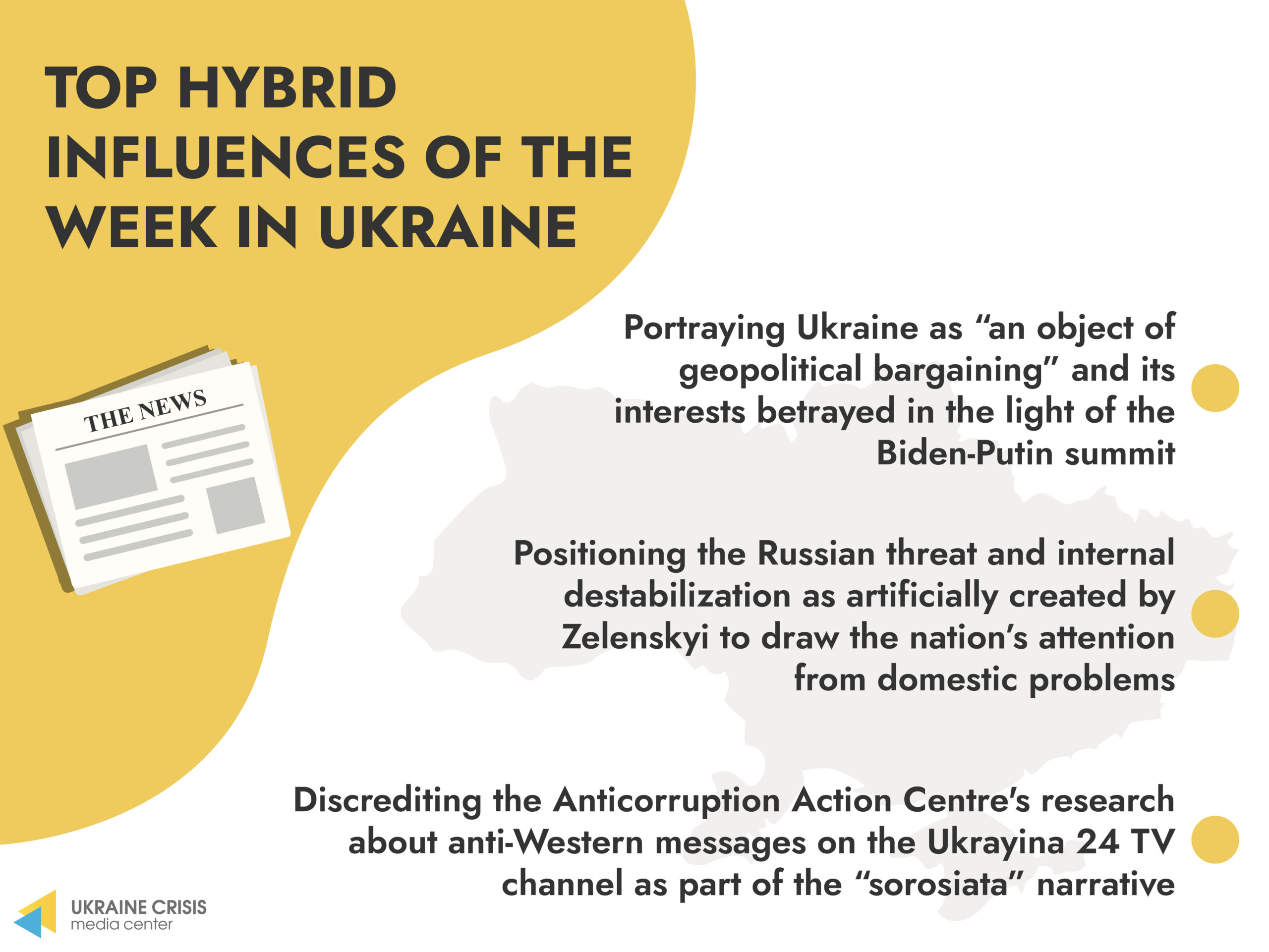
The Biden-Putin call was preceded and followed by a major flow of disinformation centered around portraying Ukraine as a mere bargaining chip between the US and Russia. The reports of the Russian military build-up were positioned as the US preparing information field for the negotiations, and after the meeting, the pro-Kremlin forces tried to push the message that Ukraine’s interests were betrayed. Such attacks aim to undermine Ukraine’s relations with its partners, which consistently support Ukraine’s territorial integrity and sovereignty in the face of Russia’s aggression. For the key takeaways from the summit regarding the escalation at the Russia-Ukraine border, check out our infographic via https://uacrisis.org/en/5-takeaways-from-the-biden-putin-call-on-the-escalation-at-russia-ukraine-border
Another focus of the pro-Russian propaganda was portraying the threat of further Russia’s incursion and internal destabilization in Ukraine as Zelenskyi drawing the nation’s attention from the domestic problems. Denying the facts of Russia amassing troops near Ukraine’s border and in the occupied territories, confirmed by the intelligence of Ukraine, the US, and European countries, works in the aggressor’s favor and further destabilizes the situation in the country.
This week, the Atlantic Council published the results of the Anticorruption Action Centre’s monitoring of the narratives promoted via the Ukrayina 24 TV channel, owned by Ukrainian billionaire businessman and oligarch Rinat Akhmetov (available here: https://www.atlanticcouncil.org/blogs/ukrainealert/how-anti-reform-messages-are-replacing-pro-russian-rhetoric-on-ukrainian-tv/). The messages shared in the channel’s popular political show turned out rather anti-reform and anti-Western while implicitly promoting pro-Kremlin stance. This was met with a major information attack via many pro-Russian disinformation channels, which used the “sorosiata” narrative to discredit the study. It essentially portrays each NGO receiving at least some of its funding from the Western organizations and standing for democratic values as governed by George Soros, an investor and philanthropist portrayed as the “puppet master” of Ukrainian activism. What this narrative attempts to do is provoke distrust of the initiatives like AAC and undermine civic activism in Ukraine as such.
